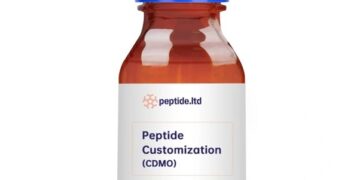Heart disease remains one of the leading causes of death worldwide, making heart health a crucial focus for individuals seeking to improve their overall well-being. Preventive measures can significantly reduce the risk of developing heart disease and enhance the quality of life. This guide provides comprehensive information on preventive measures to maintain a healthy heart, including lifestyle changes, dietary recommendations, regular screenings, and more.
Understanding Heart Disease
Types of Heart Disease
- Coronary Artery Disease (CAD): This is the most common type of heart disease and is caused by the buildup of plaque in the coronary arteries, leading to reduced blood flow to the heart.
- Heart Attack: Also known as myocardial infarction, this occurs when a part of the heart muscle is damaged or dies due to a lack of blood supply.
- Heart Failure: A condition where the heart is unable to pump enough blood to meet the body’s needs.
- Arrhythmias: Abnormal heart rhythms that can lead to various complications.
- Valvular Heart Disease: Involves damage to one or more of the heart’s valves, affecting blood flow.
Risk Factors
Understanding the risk factors for heart disease is essential for prevention. Some of the key risk factors include:
- High Blood Pressure (Hypertension): Puts extra strain on the heart and arteries.
- High Cholesterol: Leads to the buildup of plaques in the arteries.
- Diabetes: Increases the risk of heart disease significantly.
- Smoking: Damages the blood vessels and heart tissue.
- Obesity: Excess weight increases the risk of heart disease.
- Physical Inactivity: A sedentary lifestyle is a major risk factor.
- Unhealthy Diet: Diets high in saturated fats, trans fats, and cholesterol can contribute to heart disease.
- Excessive Alcohol Use: Can lead to high blood pressure, heart failure, and even stroke.
- Family History: Genetics can play a role in the likelihood of developing heart disease.
- Age and Gender: The risk increases with age and is generally higher in men, though women’s risk increases and may surpass men’s after menopause.
Lifestyle Changes for Heart Health
Regular Physical Activity
Engaging in regular physical activity is one of the most effective ways to maintain a healthy heart.
- Exercise Recommendations: Aim for at least 150 minutes of moderate-intensity aerobic exercise or 75 minutes of vigorous-intensity exercise per week, along with muscle-strengthening activities on two or more days a week.
- Types of Exercise: Include activities like brisk walking, running, swimming, cycling, and strength training.
- Benefits: Regular exercise helps lower blood pressure, improve cholesterol levels, control weight, and reduce the risk of heart disease.
Healthy Diet
A balanced and nutritious diet is fundamental to heart health.
- Heart-Healthy Foods:
- Fruits and Vegetables: Rich in vitamins, minerals, and fiber, they help reduce the risk of heart disease.
- Whole Grains: Foods like brown rice, oats, and whole wheat provide essential nutrients and fiber.
- Lean Proteins: Include sources like fish, poultry, beans, and legumes.
- Healthy Fats: Focus on unsaturated fats found in olive oil, avocados, and nuts, and avoid trans fats and saturated fats.
- Dietary Patterns:
- Mediterranean Diet: Emphasizes fruits, vegetables, whole grains, lean proteins, and healthy fats.
- DASH Diet: Dietary Approaches to Stop Hypertension diet, which is rich in fruits, vegetables, whole grains, and low-fat dairy, and low in saturated fat, cholesterol, and sodium.
- Reduce Sodium Intake: High sodium levels can lead to high blood pressure. Aim to consume less than 2,300 mg of sodium per day, and ideally around 1,500 mg for most adults.
Weight Management
Maintaining a healthy weight is crucial for heart health.
- Body Mass Index (BMI): Aim for a BMI between 18.5 and 24.9.
- Weight Loss Goals: Even a modest weight loss of 5-10% of your body weight can significantly improve heart health.
- Strategies: Combine a healthy diet with regular physical activity, and consider seeking support from a healthcare provider or nutritionist.
Smoking Cessation
Quitting smoking is one of the most important steps you can take to protect your heart.
- Risks of Smoking: Smoking damages the lining of arteries, raises blood pressure, reduces oxygen in the blood, and increases the risk of blood clots.
- Benefits of Quitting: Reduced risk of heart disease, improved lung function, and better overall health.
- Support for Quitting: Use resources such as nicotine replacement therapy, prescription medications, counseling, and support groups.
Limiting Alcohol Consumption
Moderate alcohol consumption can have some heart benefits, but excessive drinking is harmful.
- Moderation Guidelines: For those who drink alcohol, the recommendation is up to one drink per day for women and up to two drinks per day for men.
- Risks of Excessive Drinking: High blood pressure, heart failure, and increased risk of stroke.
Regular Health Screenings
Blood Pressure Monitoring
- Frequency: Adults should have their blood pressure checked at least once every two years, more frequently if they have risk factors for hypertension.
- Target Levels: Aim for a blood pressure of less than 120/80 mmHg.
Cholesterol Levels
- Frequency: Adults should have their cholesterol levels checked every 4-6 years, or more often if they have risk factors for heart disease.
- Target Levels: Total cholesterol below 200 mg/dL, LDL cholesterol below 100 mg/dL, and HDL cholesterol above 60 mg/dL.
Diabetes Screening
- Frequency: Adults aged 45 and older should be screened for diabetes every three years, or earlier and more frequently if they have risk factors such as obesity or family history.
- Management: Keeping blood sugar levels under control can significantly reduce the risk of heart disease.
Weight and BMI
- Frequency: Regular monitoring of weight and BMI can help manage and prevent obesity-related heart risks.
Lifestyle Assessments
- Regular Check-Ups: Annual health check-ups to discuss lifestyle, diet, and exercise habits with a healthcare provider.
- Personalized Plans: Developing a personalized plan for heart health based on individual risk factors and health status.
Stress Management and Mental Health
Impact of Stress on Heart Health
Chronic stress can contribute to heart disease by increasing blood pressure, heart rate, and cortisol levels.
Techniques for Managing Stress
- Mindfulness and Meditation: Practices that promote relaxation and reduce stress.
- Physical Activity: Regular exercise can help manage stress and improve mood.
- Social Connections: Maintaining strong social ties and support networks can buffer against stress.
- Professional Support: Seeking help from mental health professionals when needed.
Medication and Medical Interventions
Medications for Heart Health
For those at higher risk or with existing heart conditions, medications may be necessary to manage risk factors.
- Antihypertensives: Medications to lower blood pressure.
- Statins: Drugs to lower cholesterol levels.
- Antidiabetics: Medications to manage blood sugar levels.
- Antiplatelets and Anticoagulants: Medications to prevent blood clots.
Regular Consultations
- Follow-Up Visits: Regular follow-ups with healthcare providers to monitor heart health and adjust treatments as needed.
- Adherence to Medication: Ensuring consistent use of prescribed medications to manage risk factors effectively.
Preventive measures for heart health are essential for reducing the risk of heart disease and maintaining overall well-being. By adopting a healthy lifestyle, including regular physical activity, a balanced diet, smoking cessation, and stress management, individuals can significantly improve their heart health. Regular health screenings and medical consultations are also crucial for early detection and management of risk factors. By prioritizing heart health and taking proactive steps, individuals can enjoy a healthier, longer life.































